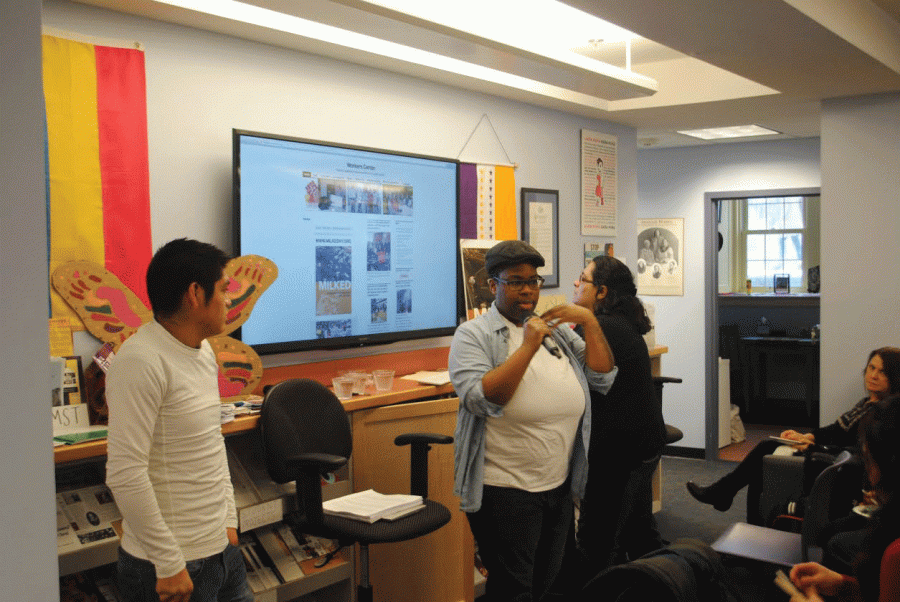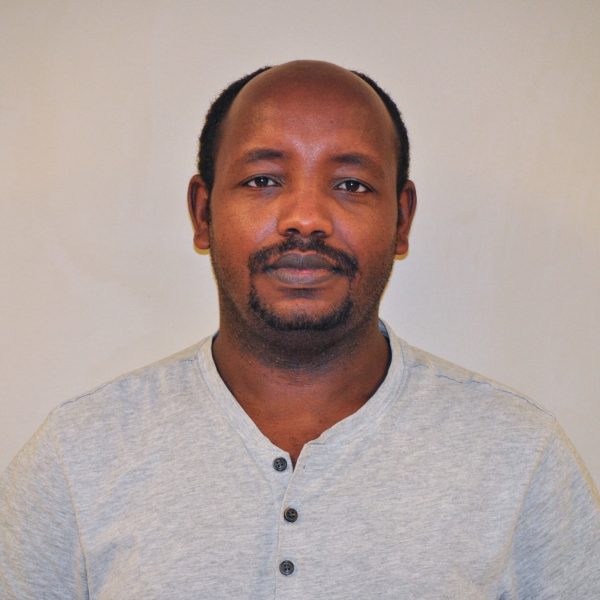The Workers’ Center: Fighting for Immigrant Workers’ Rights in New York State
This past Thursday, the Colgate Center for Women’s Studies welcomed three representatives from the Workers’ Center, a grassroots organization advocating for immigrants’ rights and workers’ rights in Central New York to discuss practices they saw as unjustly targeting undocumented immigrants and immigrant workers. The speakers, Nikeeta Slade, Crispin Hernandez and Rebecca Fuentes, additionally explained their work to organize and protest against these practices and offered a supplementary workshop later that Thursday afternoon to train students on how to respond to any detention or deportation efforts.
One of the central projects of the Workers’ Center is the Rapid Response Team or the Immigrant and Refugee Defense Network. The team’s mission is to immediately mobilize and respond to efforts from the police or the Immigration and Customs Enforcement Agency (ICE) to detain and deport undocumented immigrants. Slade described instances in which immigrants had been detained at their immigration check-ins and at regional transportation centers. The Rapid Response Team has been organizing rallies and confronting ICE agents in protest of these practices. They are also accompanying immigrants to their immigration check-ins to provide support and a sense of solidarity.
“[ICE agents cannot] just take people from our community without there being a mobilized and organized [push-back] to these vicious and barbaric attacks,” Slade said.
The speakers also brought up the issue of exploitation. Speaking about his experience working at a dairy farm in Lowville, Hernandez recalled that he and other farmworkers had been forced into bad living and working conditions and denied the right to organize. This is not just an issue for immigrants, Fuentes added. In New York State, it is not illegal for employers to force farmworkers to work 12 hours a day without overtime, nor is it illegal to prevent them from organizing. According to the leaflet the speakers handed out, a vast majority of the dairy farm workers surveyed believe their employers value them less than the cows. But it is also an immigrants’ rights issue because their immigration status makes them vulnerable to exploitation.
“We hear a lot [of], ‘Nobody would do this work, nobody would do that work,’ and nobody should do that work, because it’s inhumane,” Fuentes said.
Hernandez also explained that his employers often threatened to contact ICE agents to intimidate him and prevent him from complaining about substandard conditions.
The speakers mentioned ways in which students and residents in the community can help and support immigrants and the Workers’ Center, such as providing transportation to meetings and trainings, creating a safe space for workers to have meetings or translating for non-English speaking workers.
Junior Roberto Cortes appreciated having these concrete solutions.
“I enjoyed the brown bag because it brought awareness to the issues immigrants face and how we can help,” Cortes said.
Junior Keyra Jimenez agreed.
“The brown bag resonated with me as a daughter of immigrant parents and as someone who lives in a community where the majority of the residents are immigrants. These are vulnerable communities but they refuse to let that stop them from fighting for their rights. As a student community whose majority has the privilege of citizenship, we should be lending farm and dairy workers our help, and I hope we find a way to do so in the future,” Jimenez said.
Contact Jenny Nguyen at [email protected].








